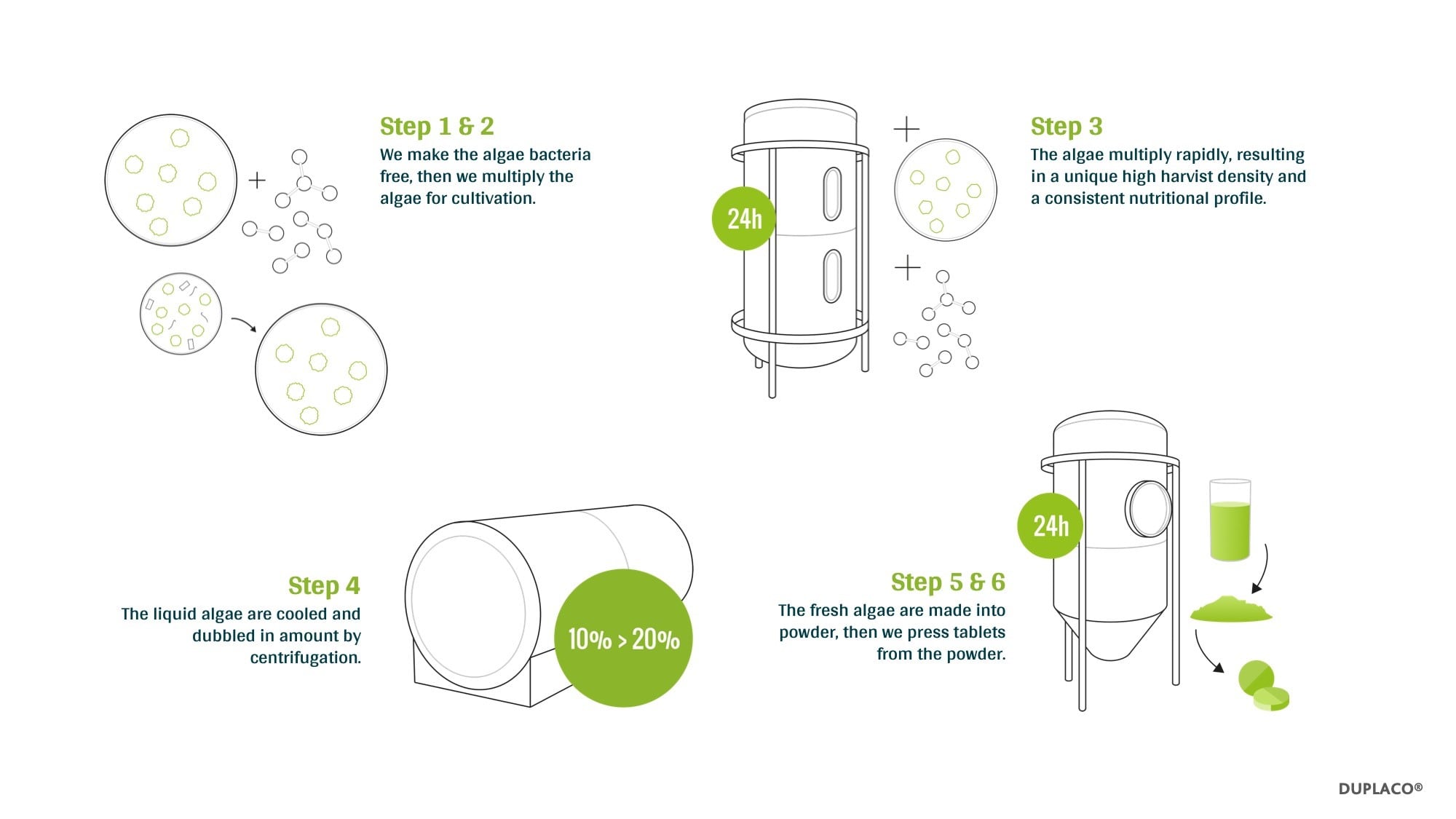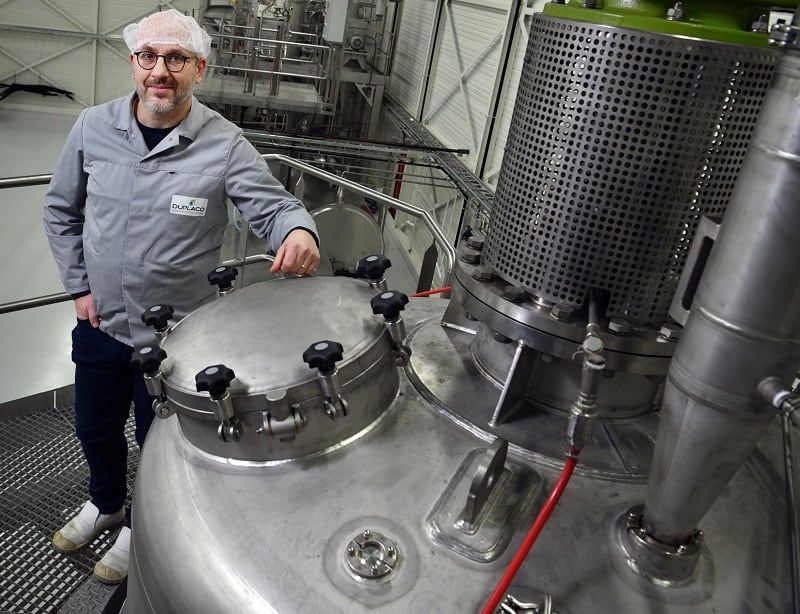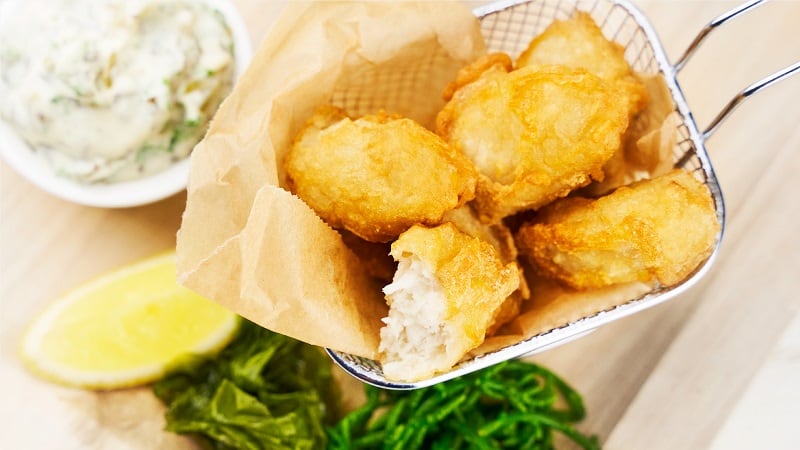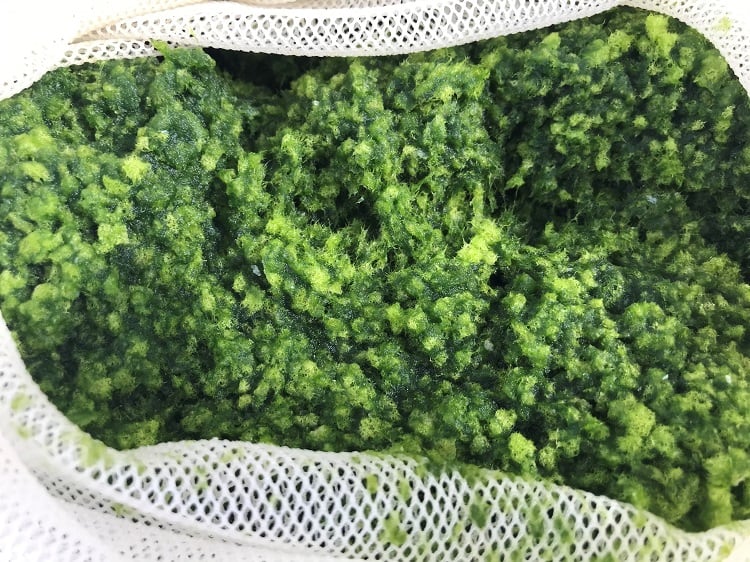Chlorella is a type of algae boasting sustainability credentials and numerous nutrients including vitamins, minerals, antioxidants and omega-3 fats. It’s also claimed to be a rare, plant-based source of B12. But organoleptic challenges have held it back in food formulations. A high chlorophyll content, for example, gives plants a green colour and a bitter taste and smell which have proven a barrier to inclusion in mainstream diets.
Dutch manufacturer Duplaco has now cultivated a new chlorella algae with a natural gold colour. Thanks to special natural cultivation, this hardly contains any colour pigments, the company said, which would otherwise be responsible for the typical green colour of foods to which chlorella has been added.
According to the company, just like the green Chlorella, it contains 40% protein, which includes all nine essential amino acids, as well as an abundance of vitamins and minerals. Duplaco Gold also boasts extra iron and even B12, the company claimed.
"Our innovative cultivation method avoids chemical treatment, which is used by other manufacturers to extract the chlorophyll from the chlorella algae afterwards," explained Duplaco’s founder and CEO Marcel Oogink.
He told FoodNavigator the product is not yet completely tasteless and odourless, but the impact on taste and odour in the end product ‘usually disappears’, as in general only small amounts are used in the formulation of the end product. “Companies are using it for a variety of reasons,” he said, “for example to include clean-label B12, or to be able to limit off-flavours from other plant-based protein sources while keeping the protein levels intact. We have also seen a positive impact on gelling and binding, though these functional benefits need to be further investigated. A completely tasteless, odourless and colourless chlorella is under development.”
He claimed Duplaco Gold has about 0.24 micrograms of vitamin B12 (cobalamin) which makes it an ‘interesting plant-based source of vitamin B12 in plant-based foods and beverages’. He added: “It is furthermore a good source to enrich products with protein, including all essential amino acids, as well as fibers, vitamins, minerals and antioxidants, including for example vitamin A, B2, B6, K1, iron and phosphor.”
Innovative production
In contrast to manufacturers from Southeast Asia, Duplaco does not produce its chlorella in open cultivation ponds, but rather in a closed fermenter. In doing so, many algae can be grown in a small space, unaffected by sunlight, weather and climate conditions, the company said. It claimed this eliminates impurities and quality fluctuations and saves customers the long transport routes including delivery problems. “Thanks to the closed and controlled system, contamination by heavy metals, disinfectants, like ethylene oxide, dioxins or PAHs can be avoided,” said the CEO. “The cultivation is independent of sunlight, weather and climate conditions, therefore guaranteeing consistent quality.”

Duplaco has recently scaled up its production in Oldenzaal, the Netherlands, from 15 tonnes to 200 to 300 tonnes per year. The aim is to increase this to 1500 tonnes per year in the future. Duplaco also plans on supplying fresh liquid chlorella, which can constitute up to 30% of a meat alternative – and correspondingly boost its protein content.

The cultivation methodology of Duplaco is a unique and proprietary methodology, ‘easy to scale and easy to automate’, elaborated Oldenzaal. “We ensure ideal circumstances for growth such that the microalgae grows rapidly. The productivity is 100 grams per liter per day, whereas the industry average for heterotrophic cultivation in a closed system is about 20 grams per liter per day, the average for open pond cultivation is 100-200 milligram per liter per day, so compared to open pond cultivation the productivity is about a factor 500-1000 higher.”
Duplaco Gold was presented to the public for the first time at this year's Anuga trade fair in Cologne. The algae was tucked into the crunchy breadcrumb coating of the vegetable fish nuggets from the Dutch start-up Monkeys by the Sea. "Duplaco Gold can also subtly enrich pasta, baked goods and meat alternatives," said Oogink. A white Chlorella is already in development, entirely without colour pigments. "It will be even more suitable for plant-based alternatives to milk, yoghurt and cheese," he added.
The developers at Duplaco said they are also working on chlorella with an even higher content of protein – and on making production even more cost-efficient.



